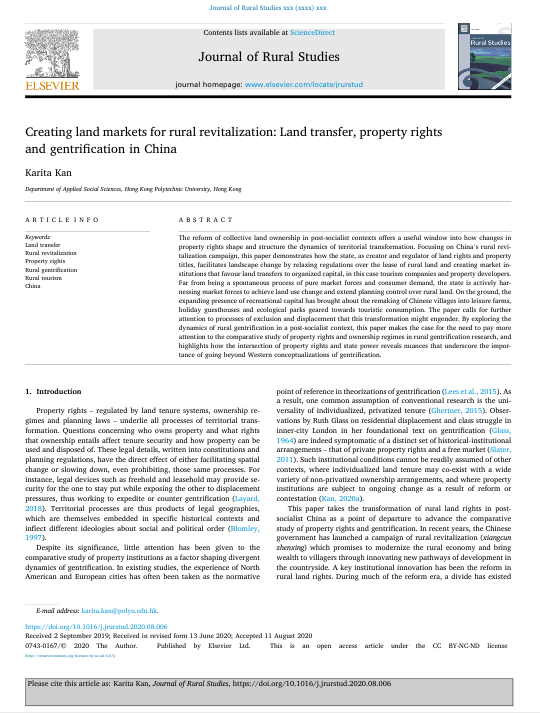Resource information
The reform of collective land ownership in post-socialist contexts offers a useful window into how changes in property rights shape and structure the dynamics of territorial transformation. Focusing on China's rural revitalization campaign, this paper demonstrates how the state, as creator and regulator of land rights and property titles, facilitates landscape change by relaxing regulations over the lease of rural land and creating market institutions that favour land transfers to organized capital, in this case tourism companies and property developers. Far from being a spontaneous process of pure market forces and consumer demand, the state is actively harnessing market forces to achieve land use change and extend planning control over rural land. On the ground, the expanding presence of recreational capital has brought about the remaking of Chinese villages into leisure farms, holiday guesthouses and ecological parks geared towards touristic consumption. The paper calls for further attention to processes of exclusion and displacement that this transformation might engender. By exploring the dynamics of rural gentrification in a post-socialist context, this paper makes the case for the need to pay more attention to the comparative study of property rights and ownership regimes in rural gentrification research, and highlights how the intersection of property rights and state power reveals nuances that underscore the importance of going beyond Western conceptualizations of gentrification.

